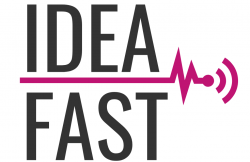
IDEA-FAST
Identifying Digital Endpoints to Assess Fatigue, Sleep and Activities of Daily Living in Neurodegenerative Disorders and Immune-mediated Inflammatory Diseases
Research summary
For patients with chronic diseases such as neurodegenerative disorders and immune-mediated inflammatory diseases, a key attribute for any successful therapeutic intervention is its ability to improve the patients’ activities of daily living (ADL) and health-related quality of life (HRQoL). Current evaluations of ADL and HRQoL rely mainly on subjective reports, typically using standardized questionnaires provided by patients every few months. The approach is often prone to recall bias, reliability issues and poor sensitivity to change.
IDEA-FAST aims to identify, profile and validate digital solutions based on mobile or residential technology for remote assessment of fatigue and sleep disturbances that could effectively be used as digital endpoints in assessments for Parkinson’s Disease and Huntington’s Disease. This is in addition to immune-mediated inflammatory diseases, such as Rheumatoid Arthritis, Systemic Lupus Erythematosus, Primary Sjögren’s Syndrome, and Inflammatory Bowel Disease. Identifying digital endpoints for fatigue and sleep disturbances that can be used in patients’ usual living environment will also enable the meaningful evaluation of impacts of these symptoms on ADL/HRQoL. The ecological validity of these digital endpoints will be tested using a large longitudinal cohort of four IMID and two NDD
Funders and sponsors
Funders: Horizon 2020
Sponsor: University of Newcastle Upon Tyne
Consortium: University of Newcastle Upon Tyne, Universitätsklinikum Schleswig-Holstein, Universita Degli Studi di Brescia, Erasmus Universitair Medisch Centrum Rotterdam, University of Glasgow, University of Limerick, ECRIN European Clinical Research Infrastructure Network, Queen Mary University of London, Imperial College of Science Technology and Medicine, Byteflies NV, DREEM, University of Cambridge, Lixoft SAS, Asociación Parkinson Madrid, Stichting MLC Foundation, TMF – Technologie und Methodenplattform für die Vernetzte Medizinische Forschung e.V., Medibiosense Ltd, empirica Gesellschaft für Kommunikations und Technologieforschung Mbh, FCiências.ID – Associação para a Investigação e Desenvolvimento de Ciências, Pluribus One S.r.l., instituto de Medicina Molecular Joao Lobo Antunes, Teknologian tutkimuskeskus VTT Oy, Cambridge Cognition Ltd, Universidad Autonoma de Madrid, Institut Mines-Télécom, McRoberts BV, George-Huntington-Institut GmbH, Instytut Psychiatrii I Neurologii, Medizinische Universität Innsbruck, Helse Stavanger Hf, iXscient Ltd, European Federation of Crohn’s & Ulcerative Colitis Association, Academisch Ziekenhuis Leiden, University of Manchester, Janssen Pharmaceutica, Takeda Development Centre Europe Ltd, Abbvie Inc, AstraZeneca AB, Eli Lilly & Co. Ltd, Parkinson’s Disease Society of the United Kingdom, Pfizer Ltd, F. Hoffmann-La Roche AG, Sanofi Aventis Recherche et Développement, UCB Biopharma SPRL, Biogen IDEC Ltd, Orion OYJ, CHDI Foundation
Chief investigator
Prof Wan-Fai Ng






